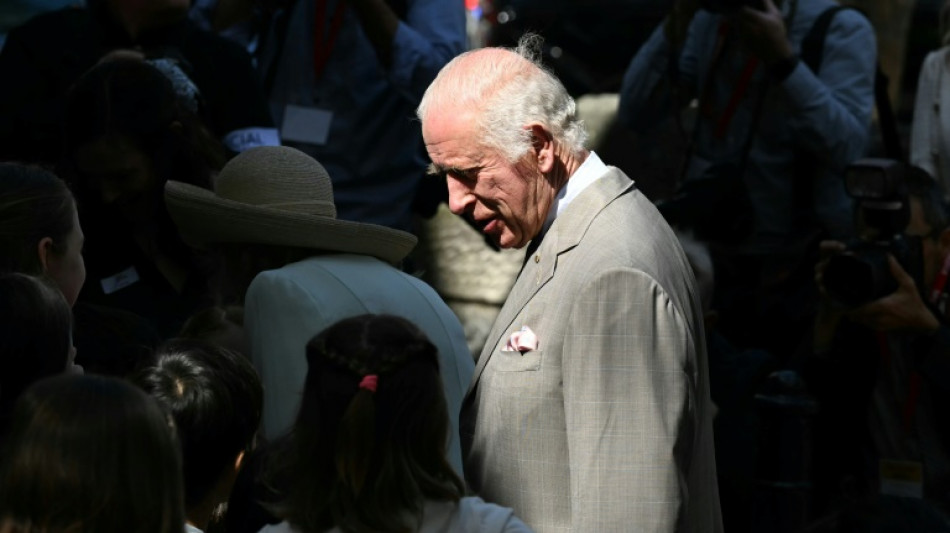
King Charles to spotlight conflict, climate in Australian capital

An Aboriginal smoking ceremony will welcome King Charles III to Australia's capital Canberra on Monday, where the monarch will spotlight past war efforts and a new fight against climate change.
Charles -- who received a life-changing cancer diagnosis just eight months ago -- is on a nine-day visit to Australia and Samoa, the first major foreign tour since he was crowned.
Smouldering native plants will be wafted over the king in a greeting ritual that begins one of the busiest legs of his six-day Australia tour.
Bearing a swag of new military honours bestowed over the weekend, Charles will pay his respects at Australia's imposing national war memorial.
A 21-gun salute will then herald the king's arrival at parliament, which the sovereign will address for the first time as head of state.
The rest of the day has been set aside for causes close to the 75-year-old's heart -- namely conservation and climate change.
Charles will visit a purpose-built lab at Australia's public science agency, which is used to study the bushfires that routinely ravage swathes of the country.
Later he will stroll through plots of native flowers at Australia's national botanic garden, discussing how a heating planet imperils the country's many unique species.
- The 'climate king' -
A lifelong greenie, Charles' passion for conservation once saw him painted as a bit of an oddball.
He famously converted an Aston Martin DB6 to run on ethanol from leftover cheese and white wine, and once confessed that he talked to plants to help them grow.
But his climate advocacy -- which has seen him dubbed the "climate king" -- is sure to resonate in a country increasingly scarred by fire and flood.
Many of Australia's state premiers will miss a reception for the king hosted in the parliament's "great hall".
Although they are tied up with overseas travel, elections, or other pressing government business -- their absence suggests the throne does not have the pulling power it once did.
Australians, while marginally in favour of the monarchy, are far from the enthusiastic loyalists they were in 2011 when thousands flocked to catch a white-gloved wave from Charles' mother Queen Elizabeth II.
Visiting British royals have typically carried out weeks-long visits to stoke support, parading through streets packed with thrilled, flag-waving subjects.
But the king's fragile health this time around has seen much of the typical grandeur scaled back.
Aside from a community barbecue in Sydney and an event at the city's famed opera house, there will be few mass public gatherings.
R.Zarlengo--PV
